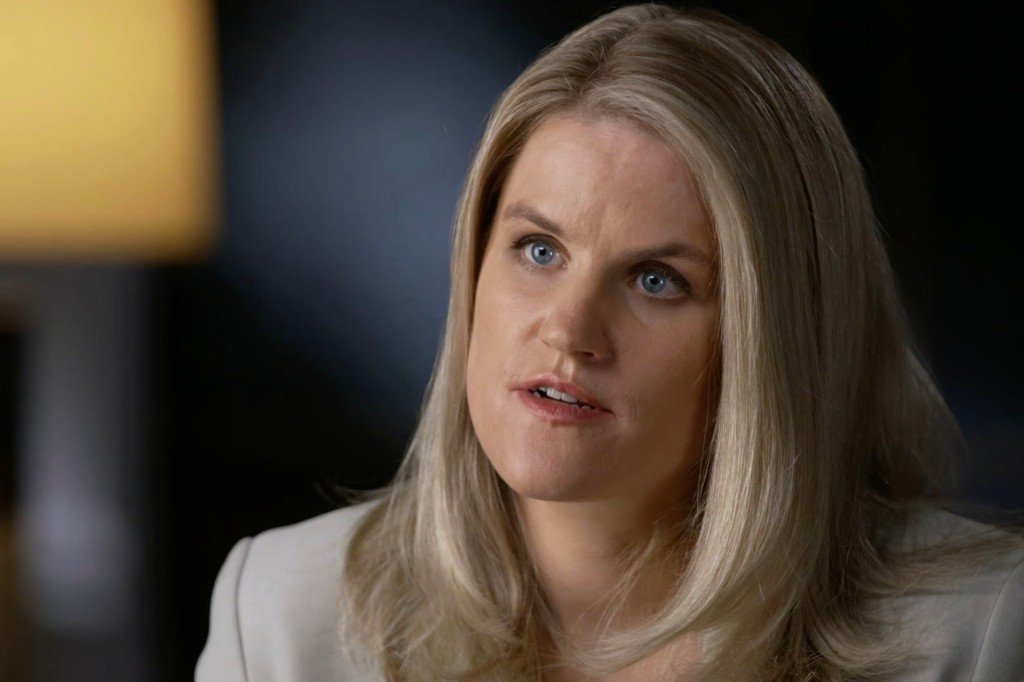
A day after Facebook and its units, including Instagram, suffered a major disruption, former Facebook employee, whistleblower Frances Haugen, testified at a congressional hearing that “for over five hours Facebook has not been used to delve into divisions, destabilize democracies and make young people and women feel bad about their bodies.”
Haugen is calling on US lawmakers to regulate the social media giant.
The former Facebook Inc. employee said the social media giant’s products hurt the mental health of some young users, fuel divisions and undermine democracy, urging US lawmakers to regulate the company.
Lawmakers accused CEO Mark Zuckerberg of pushing for higher profits while being arrogant about user safety and demanded that regulators investigate allegations that the social media company harms children and nurtures divisions.
- Daniel Negreanu Finally Breaks His Losing Streak to Win Big in Super High Roller Bowl
- Baby Died After Her Mother Left Her On A Trip For Six Days
- OUTSPOKEN: Why Brazil Is The Most Important Country Right Now? By Will Lisil
- How To Build My Artistic Identity In The Metaverse?
- The Spike Protein From Covid Vaccine Can Persist In The Body For Months, Causing Debilitating Symptoms, According To A Study
In an era when bipartisanship is rare on Capitol Hill, lawmakers from both parties criticized the nearly $1 trillion company in a hearing that exemplified Congress’s growing anger at Facebook amid numerous demands for legislative reform.
While lawmakers criticized Facebook and Zuckerberg, company spokespeople retaliated on Twitter, arguing that Haugen did not work directly on some of the issues she was being asked about.
The chairman of the Senate trade subcommittee, Senator Richard Blumenthal, a Democrat, said Facebook knew its products were addictive, like cigarettes.
“Technology now faces that great jaw-dropping moment of truth in tobacco,” he said.
He asked Zuckerberg to testify before the committee and that the Securities and Exchange Commission and Federal Trade Commission investigate the company.
“Our children are the victims. Today’s teenagers who look in the mirror feel doubt and insecurity. Mark Zuckerberg should be looking in the mirror,” Blumenthal said, adding that Zuckerberg was sailing.
Haugen, a former product manager for Facebook’s civic disinformation team, said Facebook has sought to keep its operations confidential.
Today, no regulator has a menu of solutions to fix Facebook, because Facebook didn’t want them to know enough about what’s causing the problems. Otherwise, there would be no need for a whistleblower.
The subcommittee’s top Republican, Marsha Blackburn, said Facebook turned a blind eye to children under 13 on its websites.
“Of course, Facebook prioritizes profit over the well-being of children and all users.”
Senator Roger Wicker, another Republican, agreed. “Children of America is addicted to their products. There is a cynical understanding on the part of these big tech companies that this is true,” he said.
Facebook spokesman Kevin McAlister said in an email before the hearing that the company sees protecting its community as more important than maximizing profits and said there was no need for publicized internal surveys to show that Instagram it was “toxic” to teenagers.
Haugen revealed that she was the one who provided the documents used in a Wall Street Journal investigation and a Senate hearing over Instagram’s harm to teenagers.
Last week Antigone Davis, Facebook’s global head of security, defended the company and said it was trying to launch additional internal studies in an effort to be more transparent about its findings.
Senator Maria Cantwell, chairman of the Commerce Committee, said she would write a letter to Facebook to insist it not delete documents related to the persecuted Rohingya Muslim minority in Myanmar. An advisor said she would ask for broader retention of documents.
Haugen said Facebook has also done very little to prevent its site from being used by people planning violence.
Senator Edward Markey, speaking to absentee Zuckerberg, said during the hearing: “Your time to invade our privacy and prey on children is over. Congress will take action.”
Throughout the hearing, lawmakers criticized Zuckerberg, who they said he would go sailing rather than face his responsibilities. The CEO posted a video this weekend of his wife’s new smart glasses on a boat.
“I’m here today because I believe Facebook’s products harm children, fuel division and undermine our democracy,” Haugen said in a statement before his testimony on Capitol Hill.
“Congress action is needed. They will not resolve this crisis without your help”.
His testimony came a day after Facebook and two of its main services, Instagram and the WhatsApp messaging app, suffered an hour-long global outage and after weeks of mounting pressure on the social media company to explain its policies for young users .
Haugen went public in an interview with CBS on Oct. 3 and revealed that she was the one who provided the documents used in a Wall Street Journal investigation and a Senate hearing on Instagram’s alleged harm.
The WSJ stories showed that the company contributed to increasing online polarization by making changes to its content algorithm; failed to take steps to reduce vaccine hesitation and was aware that Instagram was damaging the mental health of teenagers.
“As long as Facebook is operating in the shadows, hiding its research from public scrutiny, it’s inexplicable,” Haugen told the panel on Tuesday.
“Until the incentives change, Facebook won’t change. Left alone, Facebook will continue to make choices that go against the common good,” she said. “Facebook hides behind walls that prevent researchers and regulators from understanding the true dynamics of its system.”
Facebook spokesman Kevin McAlister said in an email to Reuters news agency that the company sees protecting its community as more important than maximizing profits.
He also said it wasn’t accurate to say that a leaked internal survey showed that Instagram was “toxic” to teenagers.
That testimony echoed Facebook’s global security chief Antigone Davis, who was handed over to the same Senate committee last week. “We care deeply about the safety of people on our platform,” Davis said at the time.
“We take the issue very seriously … We put in place various safeguards to create safe and age-appropriate experiences for people between 13 and 17 years old,” he concluded.





